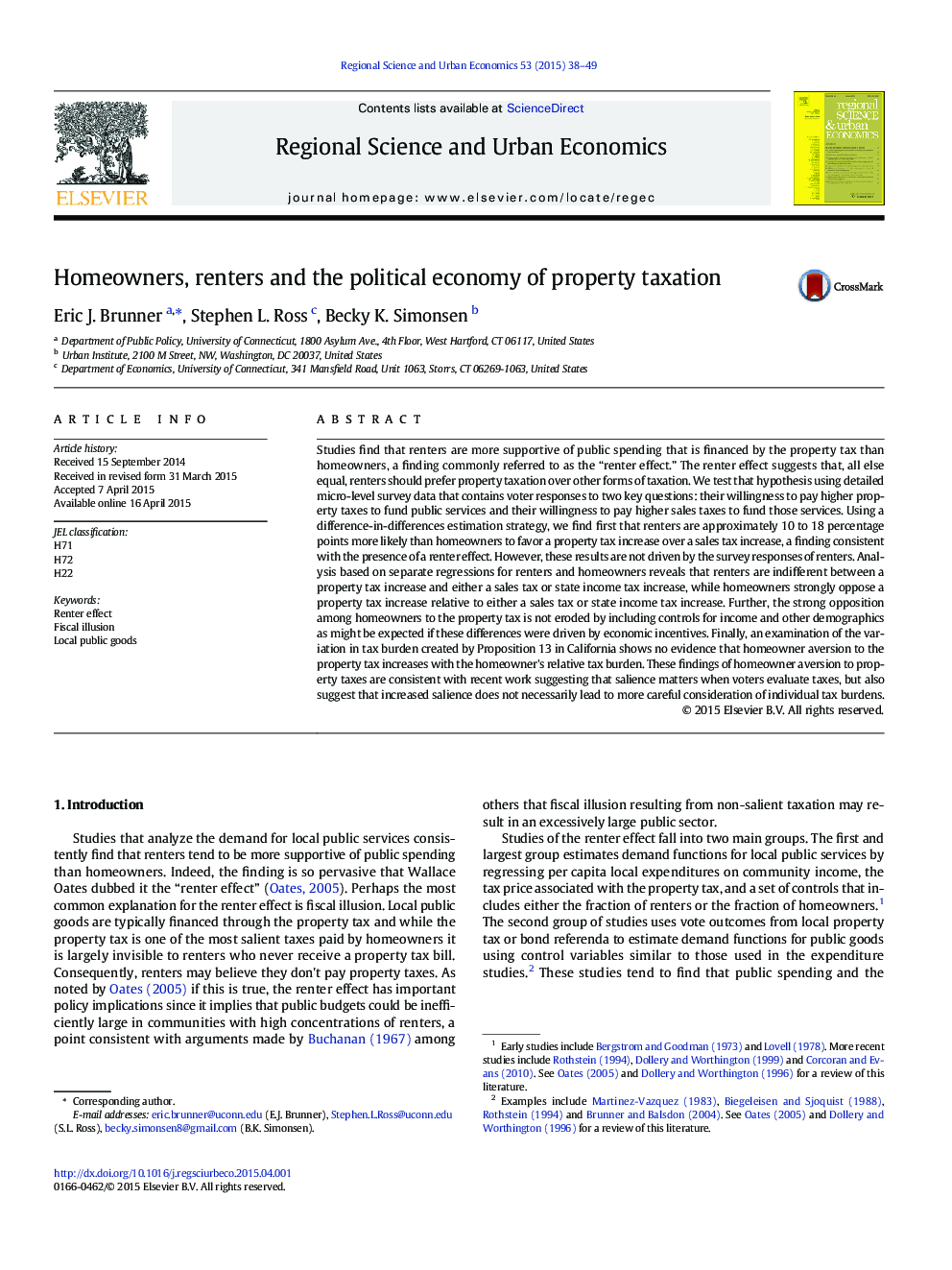| Article ID | Journal | Published Year | Pages | File Type |
|---|---|---|---|---|
| 983246 | Regional Science and Urban Economics | 2015 | 12 Pages |
•The renter effect suggests that renters prefer property taxation to other forms of taxation.•We test that hypothesis using detailed micro-level survey data.•We find first that renters are more likely than homeowners to support a property tax increase over a sales tax increase.•These results, however, are not driven by the voting behavior of renters.•Renters appear indifferent between property and sales tax increases while homeowners clearly prefer the sales tax.
Studies find that renters are more supportive of public spending that is financed by the property tax than homeowners, a finding commonly referred to as the “renter effect.” The renter effect suggests that, all else equal, renters should prefer property taxation over other forms of taxation. We test that hypothesis using detailed micro-level survey data that contains voter responses to two key questions: their willingness to pay higher property taxes to fund public services and their willingness to pay higher sales taxes to fund those services. Using a difference-in-differences estimation strategy, we find first that renters are approximately 10 to 18 percentage points more likely than homeowners to favor a property tax increase over a sales tax increase, a finding consistent with the presence of a renter effect. However, these results are not driven by the survey responses of renters. Analysis based on separate regressions for renters and homeowners reveals that renters are indifferent between a property tax increase and either a sales tax or state income tax increase, while homeowners strongly oppose a property tax increase relative to either a sales tax or state income tax increase. Further, the strong opposition among homeowners to the property tax is not eroded by including controls for income and other demographics as might be expected if these differences were driven by economic incentives. Finally, an examination of the variation in tax burden created by Proposition 13 in California shows no evidence that homeowner aversion to the property tax increases with the homeowner's relative tax burden. These findings of homeowner aversion to property taxes are consistent with recent work suggesting that salience matters when voters evaluate taxes, but also suggest that increased salience does not necessarily lead to more careful consideration of individual tax burdens.
